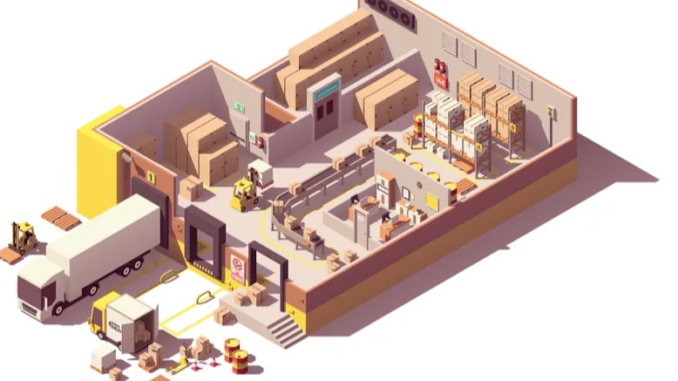

Imagine the heart of the supply chain, beating and pumping out goods and products, that’s warehousing for you. Now, with technology’s ever-expanding reach, South Africa is rethinking its traditional warehousing heartbeat. The beat is faster, more flexible, and it’s called on-demand warehousing, changing the way we think about storage and distribution in Africa.
What is On-Demand Warehousing?
Think of on-demand warehousing as the Airbnb or Uber for storage. Instead of committing to long-term rentals, businesses can now opt for warehouse spaces just when they need them, and only for as long as they need them. It’s a flexible model that lets storage needs dance to the rhythm of real-time demand.
What’s The Difference Between Traditional Warehousing & On-Demand Warehousing?
When it comes down to the core of what makes traditional warehousing vs on-demand warehousing different it all comes down to the word “flexibility” as you will see below.
Traditional Warehousing:
1. Fixed Commitments
Traditional warehousing typically involves long-term lease agreements or ownership of the facility. Companies need to commit to a fixed space for a designated period.
2. Fixed Costs:
With traditional warehousing, there are usually fixed costs associated with the lease, maintenance, staff salaries, and utility bills.
3. Capacity Constraints:
The space available is limited to the size of the warehouse. If a business grows and needs more space, it may have to wait until the lease ends or look for additional warehousing solutions.
4. Flexibility:
Traditional warehousing might not offer as much flexibility since businesses need to manage their operations based on the space they have leased or own.
5. Traditional Warehousing is Ideal For:
Established businesses with consistent inventory levels and predictable demand.
On-Demand Warehousing:
1. Flexible Commitments:
On-demand warehousing offers short-term solutions, allowing businesses to rent space as needed. It’s a pay-as-you-go model which might be for a few days, weeks, or months.
2. Variable Costs:
Since businesses only pay for the space, they use and for the time they need it, costs can be variable and can fluctuate based on demand.
3. Capacity Adjustments:
This model allows businesses to easily scale up or down based on their inventory needs. If more space is required, businesses can quickly find and rent additional space without waiting for a lease to end.
4. Overall Flexibility:
On-demand warehousing is highly flexible, accommodating seasonal spikes in inventory, special projects, or sudden increases in demand.
5. On-Demand Warehousing is Ideal For:
Start-ups, e-commerce businesses with unpredictable inventory demands, businesses with seasonal products, or any business experiencing sudden growth.
How is it Making Waves in South Africa?
In The E-commerce World
As more South Africans click to shop, retailers are juggling with changing inventory needs. On-demand warehousing is their answer to these ebb and flow demands, especially when there’s a new product launch or a festive season rush.
Start-ups and SMEs
For budding entrepreneurs and small businesses that don’t have deep pockets, on-demand warehousing offers a cost-effective way to store without the pressure of owning or leasing large spaces.
For the Logistics Maestros
Third-party logistics providers find a friend in on-demand warehousing. They can serve a variety of clients and their unique storage needs without getting tied down to one place due to the flexible nature of on-demand warehousing.
Farming and Agriculture
When the crops are aplenty, and the granaries are full, farmers can tap into these flexible spaces. And when the season is lean, they can scale back their storage needs freely.
How Does Africa Benefit from on demand Warehousing?
Smart Spending:
Imagine paying only for a movie’s interval if you missed the first half. That’s the kind of cost-saving businesses achieve by paying just for the space and time they use.
Stay Nimble:
Market changes? No worries. Businesses can quickly adapt without being tied down by long-term commitments.
Smart Space Use:
Many on-demand warehousing platforms use tech to ensure every inch is used optimally.
Keep the Cash Flowing:
Instead of locking funds in property, businesses can use that money to chase new dreams and expand.
Grow As You Go:
If there’s a sudden uptick in business, securing more warehousing space is just a call away.
Go Green:
Optimal use of space means less wastage. Spaces that would have remained unused become active hubs of commerce.
Brief Examples of Company’s Which Provide on Demand Warehousing
Rhenus Logistics – South Africa & Namibia
Company’s such as Rhenus a known big player in the logistics world offer flexibility with their warehousing solutions which falls in line with the principles of on-demand warehousing.
Verst not only offers on-demand warehousing but also packaging, shipping, and other value-added services.
ShipNetwork This company not only offers on-demand warehousing but also packaging, shipping, and other services.
Wrapping Up
As Africa steps into the global spotlight, its businesses need to dance to a different beat – one that’s dynamic and responsive. On-demand warehousing is helping South Africa lead this dance, promising a brighter, more flexible future for businesses across the continent. Embracing this trend means more than just savings; it’s about gearing up for growth and being ready for tomorrow.



